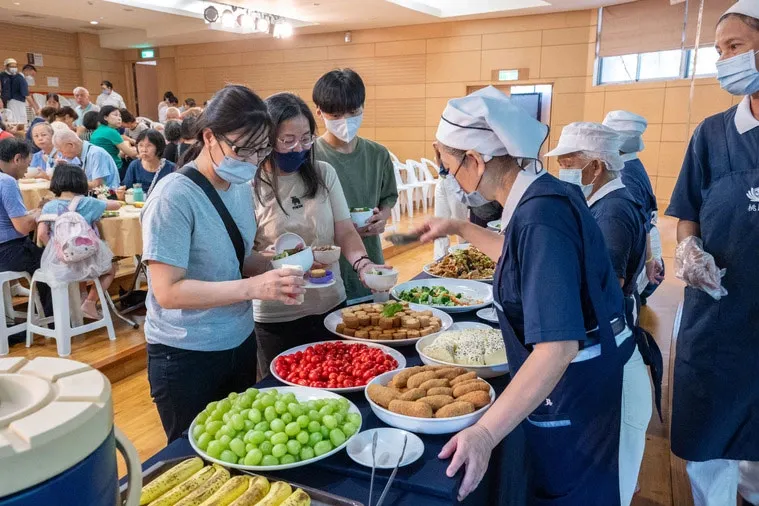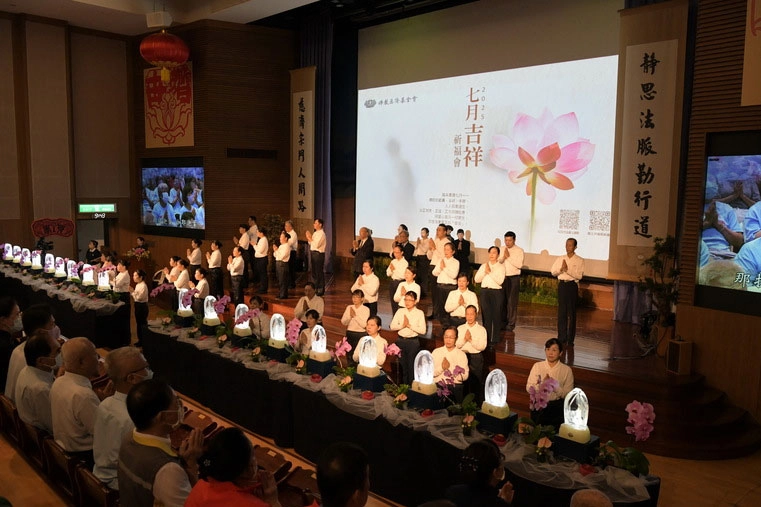Across Chinese communities worldwide, the seventh lunar month—commonly known as "Ghost Month"—has long been associated with superstition and fear. Traditionally, this period is marked by rituals and taboos meant to appease wandering spirits, leading many to approach the month with caution. However, Buddhist teachings, especially those shared by Master Cheng Yen, have inspired a new perspective: seeing this time as an opportunity for auspiciousness, gratitude, and compassion.
A Shift in Perspective
For generations, the seventh lunar month has been surrounded by customs that emphasize avoiding misfortune. Many people grew up with a sense of unease during this period, following numerous prohibitions. This outlook began to change for some after encountering Buddhist teachings that highlight the deeper meaning behind these traditions. Master Cheng Yen has explained that the seventh lunar month is not a time of misfortune, but rather a "Month of Auspiciousness." This understanding has encouraged many to develop faith and seek the true origins of these customs.
Since 1968, Master Cheng Yen has advocated for breaking superstitions and focusing on caring for the living. She emphasizes that the seventh lunar month was a time of joy for the Buddha, commemorating the spiritual achievements of his disciples, and a time for expressing gratitude—especially towards one’s parents.
Promoting Positive Traditions
These teachings have been widely shared in Chinese communities around the world. In 1990, during a public lecture in Taichung, Master Cheng Yen described the seventh lunar month as having three key meanings: it is a month of auspiciousness, a month of joy for the Buddha, and a month of gratitude. This message has been reinforced through community events, lectures, and vegetarian food fairs, encouraging people to put these values into practice.

In 2007, Master Cheng Yen further encouraged integrating environmental protection into these observances. She called for vegetarian offerings and reducing the burning of paper money—practices that are gradually gaining acceptance in temples and communities across Taiwan as a whole.
Transforming Rituals into Compassionate Action
Changing long-standing customs is not easy. Traditional rituals such as burning paper money and offering animal sacrifices have deep roots. However, through ongoing education and advocacy, more people are embracing new ways to honor the season—by practicing repentance, adopting vegetarian diets, and caring for the environment.
In 2011, during Tzu Chi’s 45th anniversary, a series of Dharma assemblies were held with the theme "Dharma as Water Nourishes All Lives, Spread Humanistic Culture by Protecting the Environment." Participants in these events committed to at least 108 days of vegetarianism, setting a new standard for spiritual practice during this period.

Since 2024, Master Cheng Yen has promoted the chanting of the "Wondrous Dharma Essence of Infinite Meanings", encouraging families and communities to recite it together. She teaches that this practice brings blessings and helps purify hearts and minds, spreading the Dharma throughout society.
Serving with Compassion
The true spirit of this seventh lunar month is not only about rituals, but also about extending compassion to those in need. For nearly sixty years, volunteers have provided relief to those facing hardship, whether due to natural disasters or personal misfortune.

In hospitals, medical volunteers offer more than just physical care—they provide companionship and emotional support to patients. As Master Cheng Yen has said, understanding the suffering of others and helping them resolve inner conflicts is a vital part of healing. Volunteers, in turn, find personal growth and wisdom through these interactions.
Reflecting on Our Own Hearts
Master Cheng Yen also reminds volunteers to look inward, examining their own hearts for unresolved grievances or negative emotions. By practicing repentance and striving for inner purity, volunteers not only help others but also cultivate their own spiritual well-being.
As participants in this compassionate path, individuals are encouraged to transform negative thoughts into pure intentions, to act as role models, and to inspire others to join in creating a more caring and harmonious society.
The seventh lunar month, once a source of fear, is being redefined as a time for reflection, gratitude, and compassionate action—benefiting both individuals and the wider community.
Sharing by Shih De Kan (釋德勘),
Compiled by Chun-Hui Hsu (許純惠), Hsiu-Guan Liu (劉秀觀), Editorial Team
Source: 七月吉祥月


